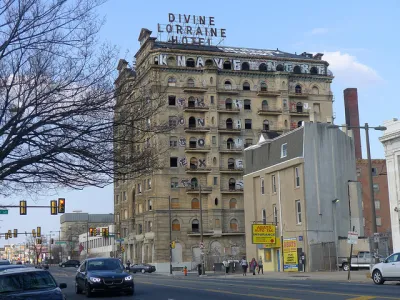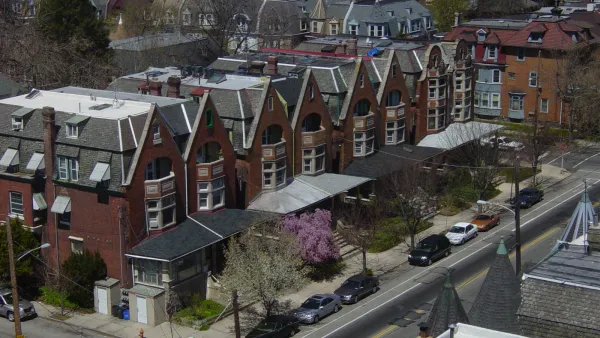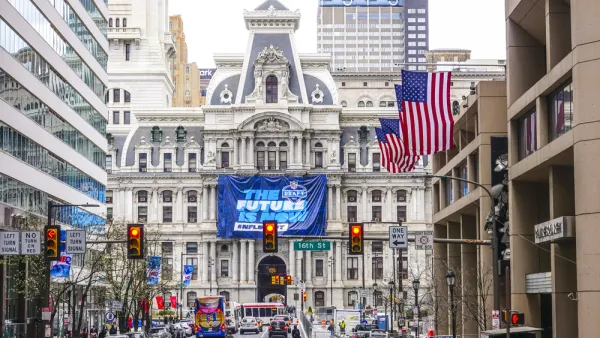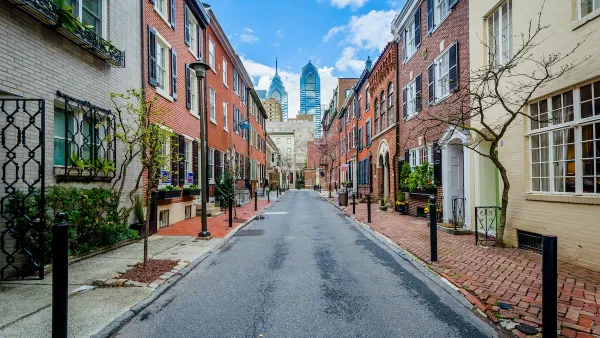Despite the historic importance of a vast majority of the city of Philadelphia's buildings, demolitions are happening at a faster rate than ever.

"Philadelphia’s history isn’t a burden," writes Ashley Hahn in the Philadelphia Inquirer, but it's certainly being treated that way. According to Hahn, "increasing numbers of old buildings are demolished annually by city contractors and private owners, landfilling reusable materials and untold histories."
While "[m]ore than two-thirds of Philadelphia buildings were built more than 50 years ago, making them potentially eligible for local historic designation on the basis of age alone," less than 3% of the city's buildings have historic designation. That protected segment, writes Hahn, "unfortunately reflects a predominantly white version of the city’s past."
"The city’s Department of Planning and Development is attempting to correct this failure through a grant-funded pilot project to develop and test a survey identifying culturally significant places overlooked by traditional preservation." The survey "will be driven by the communities whose histories the historic register has excluded, particularly Black Philadelphia."
The project, "done right," will likely take years. "The process could help build public trust in the city’s preservation system as it becomes less exclusionary and more representative of Philadelphia’s diverse heritage," writes Hahn, "[b]ut it does nothing to keep that history standing in the meantime." Hahn recommends that the city immediately "enact a demolition review policy, at least until a citywide survey is completed." Otherwise, " the city is undercutting its well-intentioned survey before it starts."
In other cities, permit applications to demolish buildings that meet "basic eligibility for local designation" trigger a review process. "It’s far faster to get a demolition permit than it is to designate a building as historic, which can take months. A demolition review policy would help level the playing field, instead of keeping it easy to level the city’s unprotected heritage."
FULL STORY: Welcome to Demodelphia, where our historic buildings are treated like a burden

Analysis: Cybertruck Fatality Rate Far Exceeds That of Ford Pinto
The Tesla Cybertruck was recalled seven times last year.

National Parks Layoffs Will Cause Communities to Lose Billions
Thousands of essential park workers were laid off this week, just before the busy spring break season.

Retro-silient?: America’s First “Eco-burb,” The Woodlands Turns 50
A master-planned community north of Houston offers lessons on green infrastructure and resilient design, but falls short of its founder’s lofty affordability and walkability goals.

Test News Post 1
This is a summary

Analysis: Cybertruck Fatality Rate Far Exceeds That of Ford Pinto
The Tesla Cybertruck was recalled seven times last year.

Test News Headline 46
Test for the image on the front page.
Urban Design for Planners 1: Software Tools
This six-course series explores essential urban design concepts using open source software and equips planners with the tools they need to participate fully in the urban design process.
Planning for Universal Design
Learn the tools for implementing Universal Design in planning regulations.
EMC Planning Group, Inc.
Planetizen
Planetizen
Mpact (formerly Rail~Volution)
Great Falls Development Authority, Inc.
HUDs Office of Policy Development and Research
NYU Wagner Graduate School of Public Service




























